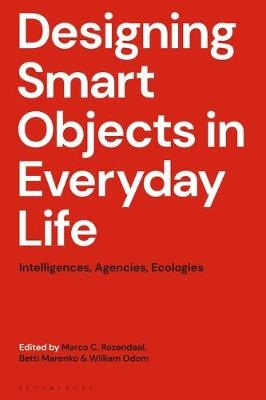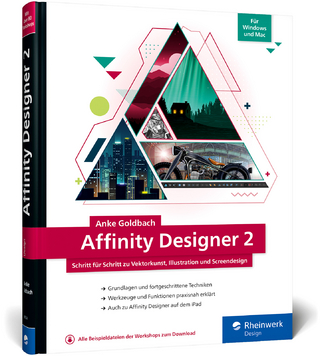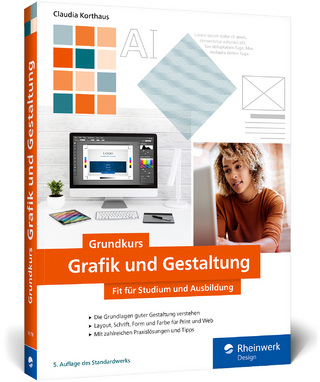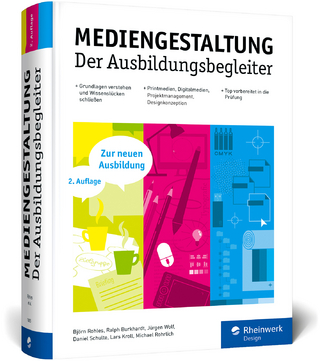
Designing Smart Objects in Everyday Life
Bloomsbury Visual Arts (Verlag)
978-1-350-16012-5 (ISBN)
By offering a critical assessment on the growing place of smart technology in everyday environments, this book outlines a transdisciplinary research agenda for the future of ‘smartness’ to help define, envision, and inspire future collaborative design practices. These essays propose an understanding and design of smart objects that embrace their hybrid nature as shifting and blending tools, agents, machines, or even ‘creatures’. Authors argue that smart objects have the potential to enter into multiple kinds of relationships with humans, and form complex human-nonhuman ecologies that are both meaningful and empowering in the context of everyday life. This book also shines a light on the hidden infrastructures behind the functioning of smart objects with stirring debates tackling questions of technology, human values, and economic and ecological impact.
Whether you are a design scholar, design practitioner or design activist this book will inspire through offering theoretical insights, design concepts and practical ways on how to engage in this research agenda for future smartness.
Marco C. Rozendaal is Associate Professor of Interaction Design at the Faculty of Industrial Design Engineering, Delft University of Technology, the Netherlands. Betti Marenko is Reader in Design and Techno-Digital Futures at Central Saint Martins, University of the Arts London, UK. William Odom is Assistant Professor in Design at the School of Interactive Arts and Technology at Simon Fraser University, Canada.
Foreword
Introduction
Perspectives
1. An Illustrated Field Guide to Fungal AI for Designers, David Kirk (Northumbria University, UK), Effie Le Moignan and David Verweij (Newcastle University, UK)
2. Dramaturgy of Devices: Theatre as Perspective on the Design of Smart Objects, Maaike Bleeker (Utrecht University, the Netherlands) and Marco C. Rozendaal (TU Delft, the Netherlands)
3. The Telling of Things: Imagining With, Through and About Machines, Kristina Andersen (Eindhoven University of Technology, the Netherlands) and Tobias Revell (London College of Communication, UK)
Interactions
4. What are you? Negotiating Relationships with Smart Objects in Intra-Action, Christopher Frauenberger (TU Wien, Austria)
5. The Dynamic Agency of Smart Objects, Jelle van Dijk (University of Twente, the Netherlands) and Evert van Beek (TU Delft, the Netherlands)
6. What can Actor-Network Theory Reveal about the Socio-Technological Implications of Delivery Robots? Nazli Cila (TU Delft, the Netherlands) and Carl DiSalvo (Georgia Institute of Technology, USA)
Methodologies
7. Sketching and Prototyping Smart Objects, Philip van Allen (ArtCenter College of Design, USA)
8. Co-Designing and Co-Speculating on Different Forms of Domestic Smart Things , William Odom (Simon Fraser University, Canada), Arne Berge (Technische Universität Chemnitz, Germany) and Dries De Roeck (Studio Dott, Belgium)
Critical Understandings
9. Marx in the Smart Living Room: What Would a Marx-Oriented Approach to Smart Objects Be Like? Betti Marenko (Central Saint Martins, UK) and Pim Haselager (Radboud University Nijmegen, the Netherlands)
10. Not a Research Agenda for Smart Objects, Ann Light (University of Sussex, UK and Malmö University, Finland)
11. Towards Wise Objects: The Value of Knowing When to Quit, Pim Haselager (Radboud University Nijmegen, the Netherlands)
Conclusion
Index
| Erscheinungsdatum | 13.08.2021 |
|---|---|
| Zusatzinfo | 14 bw illus |
| Verlagsort | London |
| Sprache | englisch |
| Maße | 156 x 234 mm |
| Gewicht | 524 g |
| Themenwelt | Kunst / Musik / Theater ► Design / Innenarchitektur / Mode |
| Mathematik / Informatik ► Informatik ► Grafik / Design | |
| ISBN-10 | 1-350-16012-1 / 1350160121 |
| ISBN-13 | 978-1-350-16012-5 / 9781350160125 |
| Zustand | Neuware |
| Haben Sie eine Frage zum Produkt? |
aus dem Bereich


